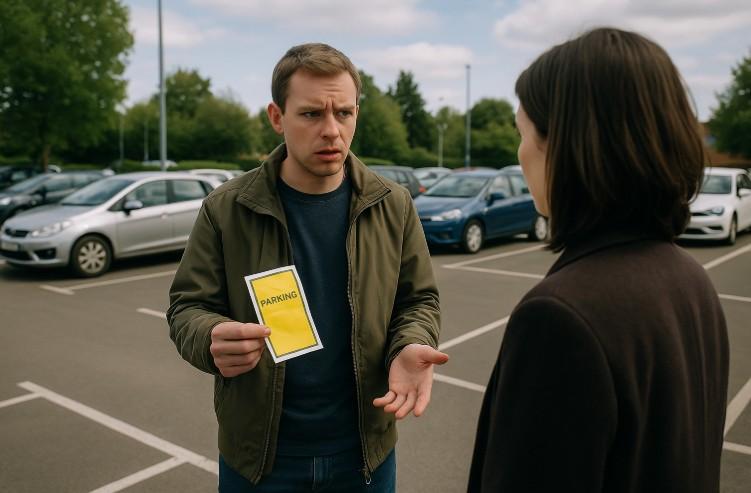Have you ever returned to your car in a supermarket or retail park only to find a ticket tucked under your wiper? The shock is real, and the first question that usually follows is: “Do I really have to pay this?” In the UK, private parking fines are not the same as those issued by councils or the police, which often leads to confusion over whether you’re legally obligated to pay.
Private parking tickets are issued by companies managing parking on private land. Unlike official fines, they fall under civil, not criminal, law. This means they’re more like invoices than legal penalties. But that doesn’t mean they should be ignored altogether.
This guide will help you understand what private parking fines are, how they differ from public tickets, and what actions you can take if you receive one, so you can respond with clarity and confidence.
What Is A Private Parking Fine And How Is It Different From A Council Fine?
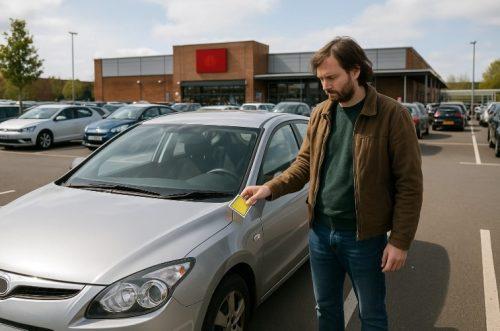
Understanding the nature of a private parking fine is crucial before taking any action. A private parking fine, usually referred to as a Parking Charge Notice (PCN), is issued by a private company managing car parks on privately owned land, such as supermarkets, shopping centres, or private estates.
Unlike Penalty Charge Notices or Fixed Penalty Notices issued by councils or the police, private PCNs are not legally binding unless a court enforces them. Their enforcement is based on contract law, not statutory law, meaning you’re considered to have entered into a contract by parking where clear terms were displayed.
Here’s how they differ:
| Aspect | Council/Police-Issued Fines | Private Company-Issued Fines |
| Enforcing Authority | Council or Police | Private Company |
| Legal Backing | Criminal/Statutory Law | Civil Law (Contract-Based) |
| Appeal Route | Formal Tribunal | Internal Process or Independent Bodies |
| Fine Amounts | Typically Fixed (e.g., £70–£130) | Variable (£50–£100+) |
The key takeaway is that council or police fines carry legal obligations, while private ones rely on proving a breach of contract in court.
Are You Legally Required To Pay A Private Parking Fine?
This is one of the most common concerns among UK motorists. In short, you are not automatically required to pay a private parking fine. These fines are not criminal charges. Instead, they are considered civil matters, rooted in contract law. When you park on private land, the displayed signage serves as the basis of a contract. If you break those terms, the company may issue a charge.
That said, ignoring the ticket altogether isn’t always wise. If the company chooses to pursue the matter, they can take you to a small claims court. If they win, you will have a County Court Judgment (CCJ) against you, which can impact your credit rating.
Here are a few things to keep in mind:
- The fine is only enforceable if the company wins in court
- You can dispute it before any legal action is taken
- Not all companies pursue legal claims, but some do
It’s important to weigh your options and act accordingly.
What Should You Do When You Receive A Private Parking Ticket?
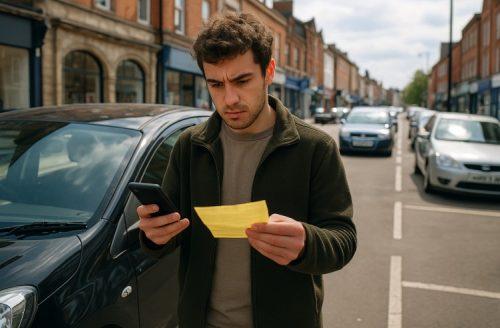
When you receive a private parking ticket, acting quickly and wisely is essential. You should avoid panicking or ignoring the charge without understanding your rights and responsibilities.
Step 1: Assess The Validity Of The Ticket
Examine the details on the notice and the circumstances in which it was issued. Was the signage clear and visible? Did you genuinely overstay or park incorrectly? Check if the company is a member of an accredited trade association such as the BPA or IPC.
- Look for visible, readable signage at the site
- Verify the time and location on the ticket
- Take photos of the car park and the posted signs for reference
Step 2: Consider Appealing The Fine
If you believe the charge is unfair, you can appeal directly to the issuing company. This must usually be done within 28 days. Include all relevant evidence in your appeal.
- Provide photos, receipts, or witness statements
- Keep all correspondence professional and factual
- Ensure you receive written confirmation of your appeal status
If the appeal is denied and the company is a BPA or IPC member, you can escalate the appeal to POPLA or the IAS for an independent decision.
Step 3: Pay Promptly If The Fine Is Justified
If the evidence shows the ticket was fairly issued, paying quickly may be your best option. Most companies offer a discount if payment is made within 14 days, saving you money and avoiding further action.
Step 4: Get Legal Or Consumer Advice If Needed
If you’re unsure what to do next, reach out to a trusted source like:
- Consumer Advice
- A legal professional
Getting professional input can prevent costly mistakes.
Can You Successfully Appeal A Private Parking Fine?
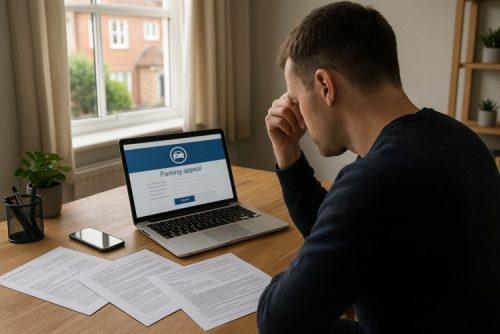
Yes, many motorists have successfully appealed private parking charges, especially when the fines are unreasonable or the signage is unclear. The first step is always to lodge a formal appeal with the parking company. Be detailed, polite, and include as much evidence as possible.
You may appeal on the following grounds:
- No visible signage or unclear terms
- Valid payment made but not recognised
- Emergency situations (e.g., medical issues)
- You were not the driver at the time
If your appeal is rejected and the company is part of the British Parking Association (BPA) or the International Parking Community (IPC), you can escalate your case to POPLA (for BPA) or the IAS (for IPC).
Successful appeals often rely on well-organised evidence and prompt action. Don’t delay your response or throw the notice away—this only weakens your case.
What Are The Risks Of Ignoring A Private Parking Fine?
Many assume that if they ignore a private parking fine, it will simply go away. In some cases, companies may stop pursuing the charge if they deem it too costly or difficult. However, this is a gamble and can lead to escalating consequences.
Risks include:
- Repeated letters from debt collection agencies
- Legal proceedings in the small claims court
- A County Court Judgment (CCJ) affecting your credit score
- Additional costs were added to the original fine
While some companies do abandon claims, others pursue them aggressively. Once legal action is taken, you lose the opportunity to settle at a reduced rate. Ignoring the fine entirely should only be considered after understanding the issuing company’s background and your legal standing.
Can The Private Parking Company Legally Enforce The Fine?
Private parking companies can’t automatically enforce a fine. They have to take legal action by filing a claim in the small claims court. For their claim to be successful, they need to prove that you breached the terms displayed on the signage and that a contract was formed when you parked.
The court process allows you to:
- Defend yourself
- Present evidence
- Challenge unreasonable charges
If you lose the case and still don’t pay, the company can request enforcement measures such as bailiffs or a court order. However, none of this can happen unless the case goes through court first. You are under no obligation to pay unless the court decides in the company’s favour. Understanding this legal process puts you in control and prevents panic over unenforced threats.
What If Your Car Was Clamped Or Towed On Private Land?
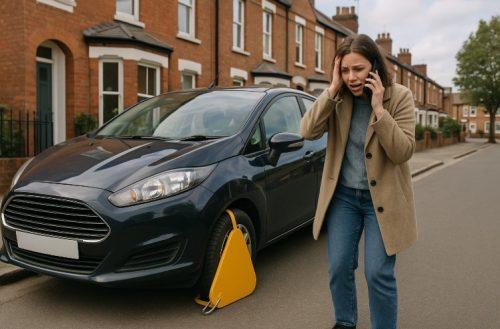
Clamping or towing on private land is generally illegal in England and Wales. The Protection of Freedoms Act 2012 banned private companies from immobilising or removing vehicles, except under certain circumstances.
Clamping or towing is only legal when:
- Done by the police or local council
- Ordered by a court and carried out by certified bailiffs
- Allowed by specific local by-laws
If your vehicle is clamped or towed by a private operator without legal authority:
- Take clear photos of the scene
- Record the company name and contact details
- File a report with the local authority or police
- Seek legal advice if necessary
In many cases, you may be entitled to compensation. It’s important to act quickly and document everything.
What To Know About Private Parking Companies And Regulation
While private parking enforcement is unregulated by law, many companies are members of trade associations that impose their own rules and codes of conduct. The two main trade bodies in the UK are the British Parking Association (BPA) and the International Parking Community (IPC).
Membership in these groups means:
- The company must offer a fair appeals process
- There are limitations on signage and charge amounts
- Motorists can escalate appeals to POPLA or IAS
Before engaging with a company, check whether they are BPA or IPC members. This influences how your appeal will be handled and whether the company can access your personal information from the DVLA. Always read the fine print, look for trade association logos on the notice, and act based on whether the company is regulated.
Should You Ever Just Ignore A Private Parking Fine?
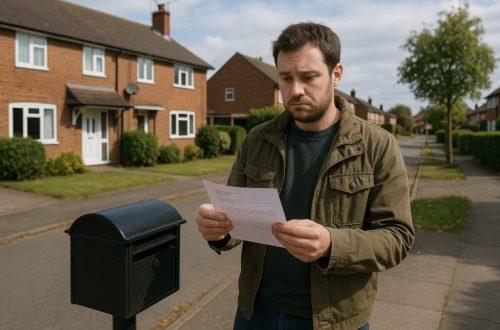
In limited situations, ignoring a private parking fine may carry low risk, particularly if the company is not a member of BPA or IPC, meaning they can’t access your DVLA records. Without your name or address, pursuing the charge becomes much harder for them.
But ignoring the fine entirely can lead to:
- Legal action
- Increased costs
- A County Court Judgment (CCJ)
Unless you’re absolutely sure the company is unaccredited and unlikely to pursue the case, ignoring it is a risky strategy. It’s often better to either appeal or seek advice rather than ignore and hope it disappears.
Conclusion
Private parking fines in the UK may appear official, but they are not automatically enforceable. While they can be pursued in court, the process is based on civil law and requires the company to prove a contract was broken. This gives you room to question, appeal, or even dispute the charge entirely.
If you receive one, don’t ignore it without evaluating your options. Check the signage, understand your rights, and act promptly. Appeals are often successful when backed with evidence, and prompt payments can save you from further stress if the fine is valid.
Ultimately, knowing the difference between public and private enforcement is the key to avoiding unnecessary costs and defending your rights effectively. Stay informed, and you’ll handle private parking fines with confidence and clarity.
FAQs
Can Private Parking Fines Affect Your Credit Rating?
Yes, but only if the case is taken to court, and the company wins a judgment against you. If you fail to pay the amount ordered by the court, a County Court Judgment (CCJ) could be registered, which can negatively impact your credit score for up to six years.
What Happens If You Refuse To Pay A Private Parking Fine?
If you refuse to pay, the company may send reminder letters, involve debt collectors, or take you to small claims court. If the court sides with them, you’ll be legally obliged to pay and could face further costs.
Is There A Time Limit For Issuing Private Parking Tickets?
Yes. According to industry codes, private parking operators should send postal notices within 14 days if no windscreen ticket was issued. However, legal claims for payment can be pursued up to six years from the date of the incident.
How Can You Prove A Private Parking Fine Is Unfair?
You’ll need evidence such as unclear signage, a valid pay-and-display ticket, proof of payment, or extenuating circumstances (e.g., medical emergency). Photographs and written statements also help strengthen your appeal.
Are Private Parking Fines Enforceable In Scotland?
Enforcement rules differ slightly in Scotland. Private parking fines are still not criminally enforceable but can be pursued as civil debts. However, fewer claims go to court due to legal limitations, and registered keeper liability laws do not apply.
Can You Get A CCJ For Not Paying A Private Parking Ticket?
Yes, but only if the company takes you to court, you lose the case, and you then fail to pay the judgment. If paid within 30 days, the CCJ can be removed; otherwise, it remains on your credit file for six years.
What Is The Difference Between A Fine And An Invoice?
A parking charge from a private company is considered an invoice under civil law, not a fine. It’s a demand for payment based on an alleged breach of a parking contract, not a penalty enforced by public law.


